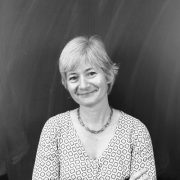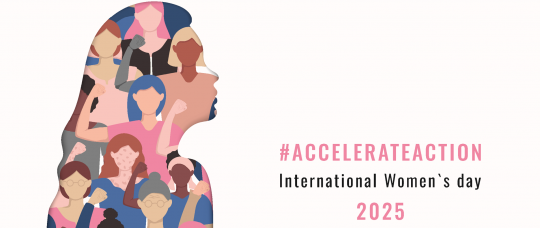
March 8 is a global day celebrating the achievements of women in every domain. This day gives focus to issues such as gender equality, reproductive rights, and violence and abuse against women. Accordingly to its work, CREST is engaged in supporting women in research at all scale.
Gender inequalities in academic careers in Economics: situation report
As other disciplines, Economics is facing under representation from women, more specifically in more advanced levels in their academic career. According to data collected in 2023 and 2024 by the Women in Economics committee (WinE) from The French Economic Association (AFSE), the proportion of women varies considerably by hierarchical level.
- At junior levels, women represent around 45% of workforce (lecturers, researchers, and post-doctoral fellows).
- As they progress up the career ladder, the proportion of women falls drastically, to just 28% to 31% at the professorial level (university professors, CNRS research directors).
- A regional disparity also exists in Île-de-France (Paris area), the proportion of women is lower than in province, more particularly in more advanced careers.
This phenomenon, commonly called “leaky pipeline”, enlightens the general issue for women to access the most prestigious positions and to progress towards them. Various factors can explain this situation: the weight of stereotypes, less recognition of women’s work, the often greater mental and family burden, as well as systemic barriers such as the lack of female role models and support networks.
Far from being a simple observation, these results led to practical initiatives to encourage women to pursue and grow in an academic career in Economics.
The WinE committee: one initiative to promote Women in Economics.
Facing those inequalities, the French Economic Association (AFSE) launched in 2023 the Women in Economics committee (WinE), nowadays chaired by Prof. Emmanuelle Taugourdeau (CNRS, CREST, Institut Polytechnique de Paris). First, the committee led a thorough study on gender distribution in academic careers in economics in France, inspired by works carried out in the US and in Europe.
In 2024, the committee took a further step forward with the introduction of a mentoring program, aimed at young economists at the start of their careers.
This program is based on a mentor / mentee relationship, where experienced researchers guide doctoral students and young researchers in their professional careers.
The first results are encouraging:
- 90 mentors volunteered to the program, among them 56% of women, demonstrating a strong desire to support withing the profession.
- 57 young researchers applied to the program, including 62% of doctoral students, 29% of postdoctoral fellows, and 9% of economists in early stages of their career.
- 42 pairs were connected: mentees receive their mentor’s contact information and initiate the communication.
Initial feedback from mentors has been very positive: they emphasize the sense of usefulness, and the fact that they can share concrete advice on academic careers and professional challenges.
As for the mentees, several testimonials underline the importance of the feeling of trust and of having a point of reference in an environment sometimes perceived as competitive and solitary.
This program is part of a wider drive to strengthen the presence of women in the economics and facilitate their progress in advanced positions, such as Women in Economics from the European Economics Association, the Committee on the Status of Women on the Economics Profession (CSWEP) from the American Economic Association, or the CEPR Women in Economics Initiative.
Women in Economics at CREST

We are also working with our institutions to promote supportive policies, such as improved maternity leave and reduced teaching loads.
Crest has inherited a poor gender ratio from a historical hiring trend that did not consider gender diversity. It is crucial to actively address gender inequalities, as diversity not only benefits women but also enriches the range of perspectives within institutions. Crest is committed to making these efforts, and progress is already underway.
For instance, in Economics, the recent hiring process for assistant professors resulted in recruiting more women than men (four women versus three men). We are also working with our institutions to promote supportive policies, such as improved maternity leave and reduced teaching loads. Additionally, Crest members strive to foster a collegial and supportive environment to help women find their place in the lab. While this support is often implicit, we strongly believe that such attitudes are essential for enabling women to fully thrive in their roles.
CREST PhD voices from Claire Leroy and Marion Brouard, in their 4th year of PhD, they were on the international job market this year to start their professional academic journey.

In the longer-run, I hope to reach a position in academia which will allow me to participate in these initiatives not as a potential beneficiary but also as someone that can help future generations of women economists after me.
I think that such initiatives are great for women economists. I have heard about several of them during my PhD, but I have never participated in one. On a daily basis, I do not think too much about being a woman in economics right now. One reason why is because as a PhD student at CREST I have generally felt as well regarded as other PhDs regardless of gender and (at least in earlier cohorts when I arrived), there was mostly gender parity in terms of composition of the PhD. However, as a soon-to-be assistant prof, I definitely know (from the many reports and statistics that have been produced and from informal conversations) that there is a lot more struggle for women at the next stage of their academic career.
Therefore, in the future, I think that I will pay closer attention to initiatives like those developed by WinE and participate in it. For example, we know that the tenure track is a key and stressful period where an assistant prof needs to put up a lot of work. Because of the biological clock, this period also often coincides with the time when women will think about having kids if they want ones. While most universities now offer an extension of the tenure clock in this case, research still show that women are penalized with delayed tenure and increased exit of academia after parenthood (Lassen & Ivandic[1]). I believe that committees like WinE can help inform researchers about such important issues, come up with possible solutions and help make them enforced in the profession.
In the longer-run, I hope to reach a position in academia which will allow me to participate in these initiatives not as a potential beneficiary but also as someone that can help future generations of women economists after me.
[1] https://www.aeaweb.org/articles?id=10.1257/pandp.20241118

Beyond awareness, these initiatives help young women find colleagues they can relate to or role models—something that can be difficult in a field where women are still underrepresented.
I haven’t actively participated in Women in Economics initiatives before, partly because CREST has provided me with an inclusive and aware environment. Otherwise, I would have likely joined, and I don’t exclude doing so in the future, as I believe these associations can be incredibly valuable for young women in economics.
Economics remains a male-dominated field, particularly when moving up the academic ladder, and while awareness of gender disparities has grown, inequalities and discrimination still persist. Associations like Women in Economics play an important role in shedding light on these issues, providing a platform for women to speak up, and fostering a sense of community where young women feel heard and supported while not having to worry about how they are perceived. Beyond awareness, these initiatives help young women find colleagues they can relate to or role models—something that can be difficult in a field where women are still underrepresented. For some, having such figures to look up to can make a difference in believing that, as a young woman, you can be successful while staying true to yourself.

